Blog
Revelation (Wahi) and Its Reality
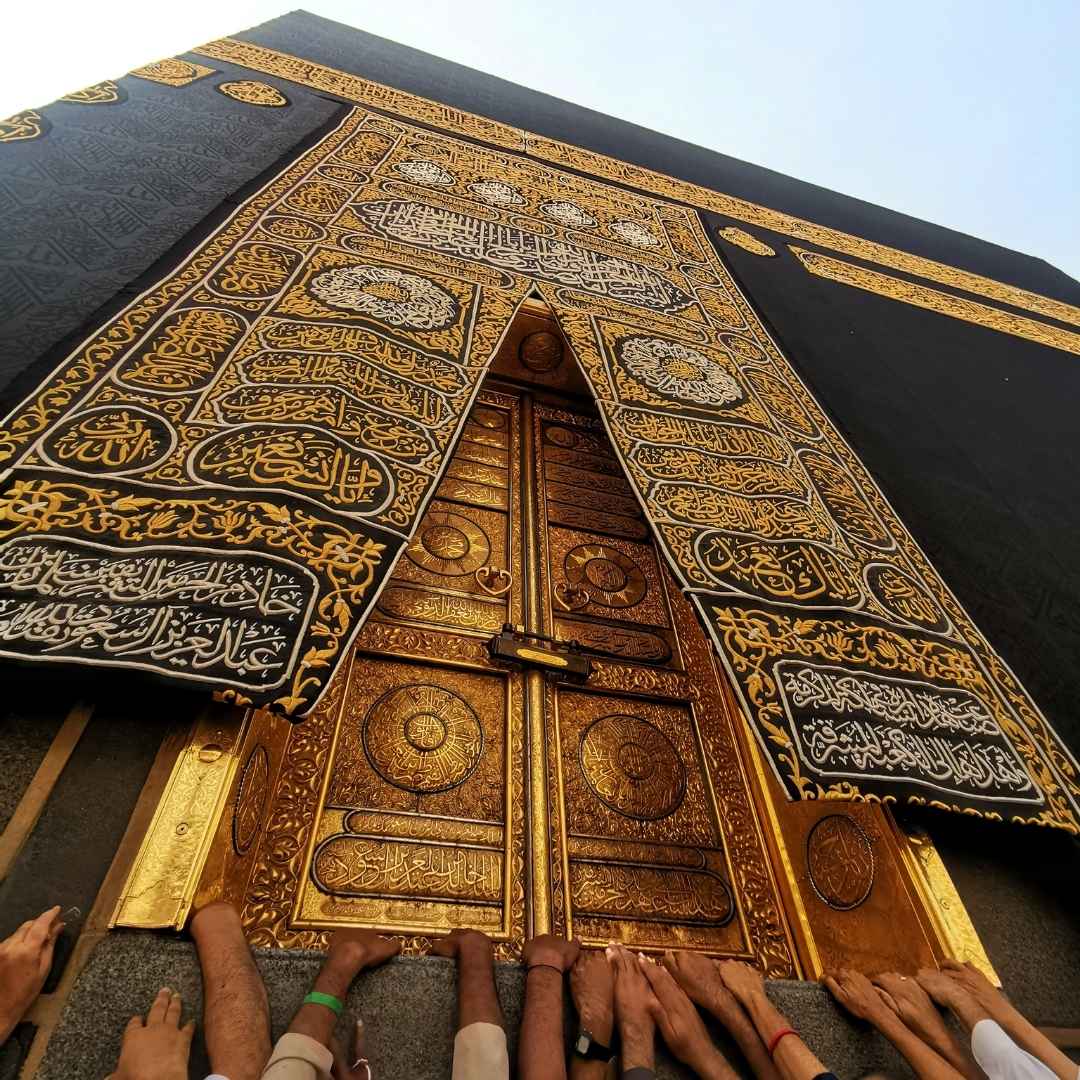
Introduction: Why Revelation (Wahi) Is Essential in Islam
The Holy Qur’an, the final divine book, was revealed by Allah Almighty to the Seal of the Prophets, Prophet Muhammad (peace be upon him), through the process of Wahi (revelation). It is this revelation that brought complete and perfect guidance for all of humanity. Understanding the nature and purpose of Wahi is essential for every Muslim, as it forms the foundation of Islamic belief and practice.
The Need for Revelation in Human Life
Every human being is created by Allah ﷻ for a noble purpose—to worship and obey Him. But how would one know how to fulfill this divine purpose without clear instructions? Human intellect, though powerful, is limited, error-prone, and influenced by desires, culture, and personal experiences. Without revelation, people would be left to their own interpretations, resulting in confusion, misguidance, and moral contradictions.
Hence, Allah sent revelations (Wahi) through prophets to deliver clear, divine commands and explanations. These revelations provided not only laws and moral guidance but also spiritual purpose and clarity about the Hereafter.
What Is Wahi (Revelation) in Islam?
Wahi literally means a “hidden or secret message.” In Islamic terminology, it refers to the special form of divine communication from Allah to His chosen prophets, either through the angel Jibreel (Gabriel), direct speech (as in the case of Prophet Musa A.S.), or divine inspiration into the heart of the Prophet.
The Holy Qur’an is the most well-known example of Wahi, revealed to Prophet Muhammad (peace be upon him) over 23 years. Revelation was of two types:
- Wahi Matlu: The Qur’an – recited and preserved as the literal word of Allah.
- Wahi Ghair Matlu: Prophetic sayings and practices (Sunnah), divinely inspired but not part of the Qur’an.
Why Intellect Alone Is Not Enough
Some might ask: Why do we need revelation when humans have intellect?
The answer lies in the imperfection of human reasoning. While intellect is a blessing, it is not infallible. History shows that even the greatest thinkers and philosophers have disagreed on core issues like morality, purpose, and the origin of life.
Intellect alone is not a universal guide. It varies from person to person and culture to culture. Without a divine standard, morality becomes relative, and truth becomes subjective.
That is why Allah, the All-Knowing, sent revelation—a flawless, universal guidance that answers life’s biggest questions with absolute certainty and eternal relevance.
The Role of Prophets with Revelation
If Allah had only sent a book without a messenger, people would have interpreted the divine words in countless ways. To prevent confusion, Allah sent prophets to demonstrate the teachings practically, answer questions, and clarify divine intent.
The Prophet Muhammad (peace be upon him) is the final Messenger, and with him came the final revelation. His life is a complete model of how to live in accordance with Allah’s guidance. As the Qur’an states:
“Indeed in the Messenger of Allah you have an excellent example…”
(Surah Al-Ahzab, 33:21)
Revelation as a User Manual for Life
Think of it this way: when someone invents a complex machine, they provide a manual explaining how to use it. Without that manual, people might misuse or even damage the machine. Similarly, humans are complex beings—physically, emotionally, intellectually, and spiritually.
Only the Creator, Allah, knows the best way to manage this creation. Therefore, He sent down revelation to guide human behavior, control desires, manage emotions, and make the best use of our mind and body.
Without Wahi, a human being is like someone lost in a dense jungle—with no map, compass, or guide.
Finality of Revelation with the Prophet Muhammad (PBUH)
With the Prophethood of Muhammad (peace be upon him), revelation came to its completion. The Qur’an is the final book, and no new prophet or new Wahi will come after him. Allah says:
“This day I have perfected for you your religion and completed My favor upon you and have approved for you Islam as your religion.”
(Surah Al-Ma’idah, 5:3)
Therefore, the Qur’an and Sunnah are the final and complete guidance for all of humanity until the Day of Judgment.
Conclusion: Wahi Is the Light of Guidance
Wahi (revelation) is the foundation of all Islamic teachings. It is through revelation that humans understand their true purpose, differentiate right from wrong, and prepare for the eternal life to come. Following the Qur’an and Sunnah is not a choice—it is a necessity for salvation.
The life and teachings of Prophet Muhammad (peace be upon him), based on divine revelation, are the ultimate roadmap to success in both worlds. Whoever follows it is rightly guided; whoever abandons it, remains in darkness.
Blog
Taught the Qur’an عَلَّمَ الْقُرْآنَ

Bismillahir Rahmanir Raheem — In the name of Allah, the Most Gracious, the Most Merciful.
The Quran: A Manifestation of Divine Mercy
It is clearly stated in the Holy Quran, particularly in Surah Ar-Rahman (55:2):
“عَلَّمَ الْقُرْآنَ”
“He taught the Qur’an.”
This verse highlights one of the greatest blessings from Allah (سُبْحَانَهُ وَتَعَالَى) — the teaching and revelation of the Quran. It is not just a holy book but a complete code of life and a divine guide for all of humanity until the Day of Judgment.
The Quran: The Eternal Guide for Muslims
The Quran has been the only source of divine guidance for Muslims for over 1,400 years. It addresses every aspect of life — from worship and family matters to social justice, ethics, and governance. If Muslims begin to read, reflect, and act upon the Quranic guidance, they will find a clear and beneficial direction in both worldly and spiritual matters.
The Prophets Followed the Quran with Utmost Obedience
When the Quran was revealed to the Prophet Muhammad ﷺ, it came verse by verse as per divine wisdom. Every prophet before him, such as Musa (Moses), Isa (Jesus), and Ibrahim (Abraham), received divine revelations that were meant to guide their respective nations. The Prophet Muhammad ﷺ not only received the final revelation but also lived by it, setting an example for the entire ummah.
The Quran Remains Protected by Allah Himself
Unlike the scriptures of other religions, which have been altered, edited, or lost, the Quran remains unchanged and preserved. Allah says in Surah Al-Hijr (15:9):
“Indeed, it is We who sent down the Qur’an and indeed, We will be its guardian.”
This divine promise ensures that the Quran will remain unaltered, pure, and authentic until the end of time.
False Books and Misguidance from Other Sources
Throughout history, numerous texts have claimed to be divine, spiritual, or sources of enlightenment. Many of these, including altered religious books or texts like the so-called Satanic Bible, are man-made deceptions. They mislead people with philosophies that go against human nature, logic, and divine truth. These books often promote falsehoods, black magic, and spiritual corruption, written with the influence of Satan and dark forces to lead people astray.
Allah has clearly warned against such false books and teachings. Any book that contradicts the Quran is not a source of divine guidance. The Quran remains the only scripture directly from Allah, preserved in its original language and recited by millions daily.
Quran and Hadith: The True Way of Life
The Quran, along with the authentic Hadith of the Prophet ﷺ, offers a complete blueprint for a successful life and the hereafter. From the moment we are born to the time we leave this world, the Quran provides:
- Purpose of life
- Moral and ethical conduct
- Guidance in relationships
- Clarity on worship and beliefs
- Preparation for the Hereafter
Conclusion: Quran is the Only True Book of Guidance
As Muslims, we must understand that the Quran is not just a book — it is the Word of Allah, a miracle, and a mercy. It has remained untouched, uncorrupted, and preserved for centuries. It is a light for those who seek truth, a shield against misguidance, and a path leading straight to Jannah (Paradise).
Let us reconnect with the Quran. Let us read it, understand it, and implement its teachings in our daily lives — for true success lies in following the guidance of Al-Quran and the Sunnah of Prophet Muhammad ﷺ.
Blog
Can Jinn Enter Paradise? Quranic Explanation from Surah Ar-Rahman

One of the most frequently asked questions among Muslims is: Can jinn (jeens) enter Paradise? The answer is yes, and it is clearly mentioned in the Holy Qur’an, especially in Surah Ar-Rahman, which sheds light on the fate of both humans and jinn.
Misconceptions About Jinn
Many people believe jinn are only evil, scary beings who harm humans. While it’s true that some jinn can possess or harm humans—especially those who follow Satan (Shaytan) and practice black magic—not all jinn are bad. Just like humans, jinn are also divided into Muslims and non-Muslims, righteous and wicked, and believers and disbelievers.
Jinn Also Follow Religions Like Humans
According to Islamic belief, jinn are intelligent beings created from smokeless fire, as stated in the Quran (Surah Al-Hijr 15:27). They have free will, meaning they can choose to believe or disbelieve, just like humans.
“And I did not create the jinn and mankind except to worship Me.”
— (Surah Adh-Dhariyat 51:56)
Some jinn follow Islam, perform salah (prayers), recite the Qur’an, and live righteous lives. Others follow different beliefs or even serve evil purposes.
Surah Ar-Rahman: Clear Mention of Jinn Entering Paradise
One of the most beautiful Surahs in the Qur’an is Surah Ar-Rahman, which addresses both humans and jinn directly with the repeated verse:
“Which of the favors of your Lord will you deny?”
— (Surah Ar-Rahman 55:13 and repeated throughout)
Later in Surah Ar-Rahman, Allah clearly describes the rewards of Paradise (Jannah) for those who do good, and addresses jinn and humans equally:
“But for he who has feared the position of his Lord are two gardens.”
— (Surah Ar-Rahman 55:46)
And in verse 56:
“In them are women limiting [their] glances, untouched before them by man or jinn.”
— (Surah Ar-Rahman 55:56)
This verse proves that jinn can enter Paradise, because Allah says that the women of Paradise have not been touched by humans or jinn, implying that jinn, like humans, will also be rewarded with Paradise if they were righteous.
The Fate of Good and Evil Jinn
Just like humans:
- Muslim jinn who live righteous lives and follow Islam will be rewarded with Jannah (Paradise).
- Disbelieving or evil jinn who practice black magic, harm others, or follow Shaytan will face punishment in Jahannam (Hell).
This balance of reward and punishment is confirmed in Surah Al-Jinn (72:14):
“And among us are Muslims [in submission to Allah], and among us are the unjust. And whoever has become Muslim – those have sought out the right course.”
Conclusion: Yes, Jinn Can Enter Paradise
Based on authentic Quranic evidence, it is clear that jinn will be judged just like humans on the Day of Judgment. They will enter either Paradise or Hell depending on their beliefs and deeds.
So, the next time someone asks, “Can jinn go to Paradise?” — the answer is a firm yes, supported by Surah Ar-Rahman and other Qur’anic verses.
Blog
The Most Merciful – Rehman (الرحمن)
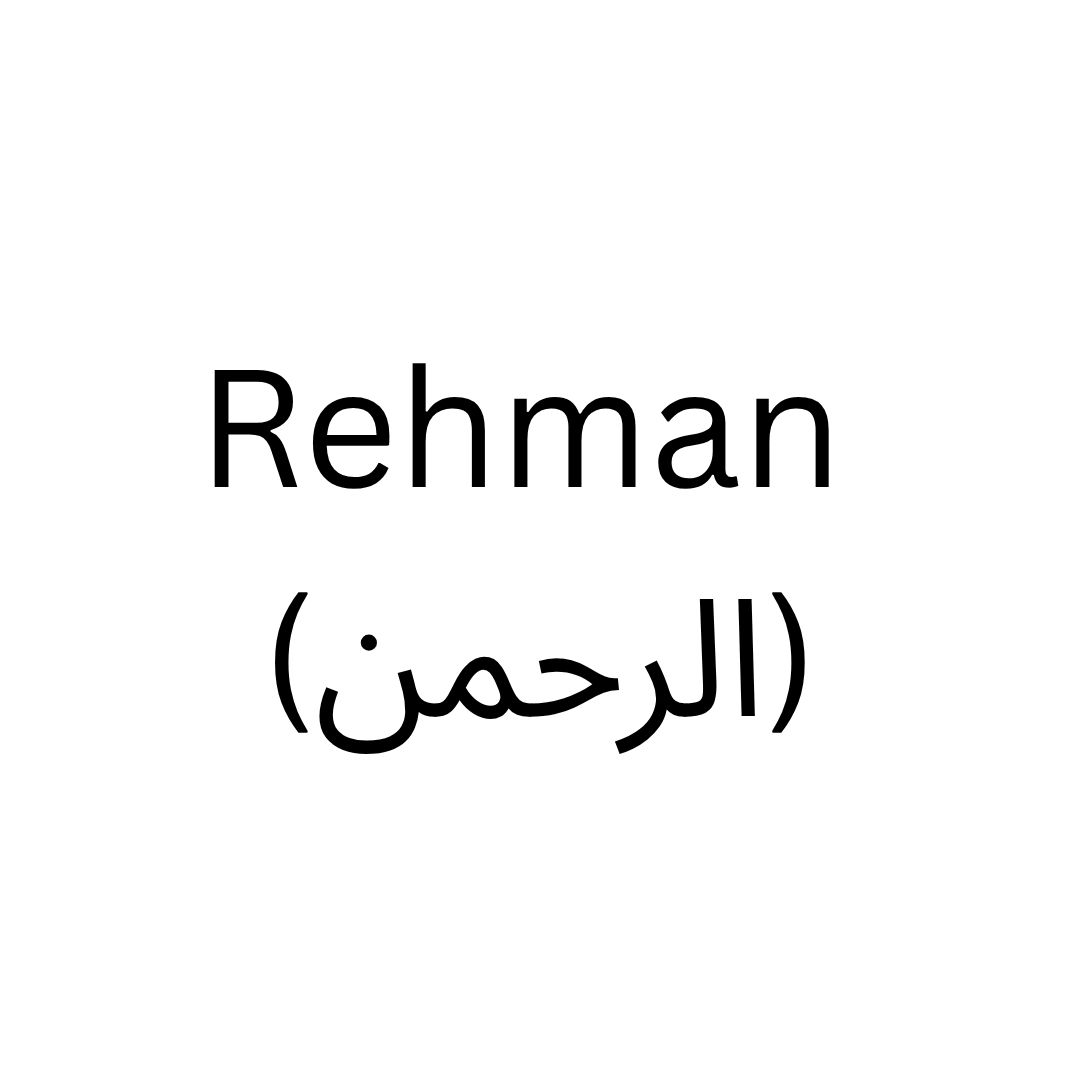
The first word of Surah Rehman is “Ar-Rehman” (الرحمن), which means “The Most Merciful.” This is one of the most beautiful and powerful names of Allah Subhanahu wa Ta’ala, highlighting His topmost quality—His endless mercy and kindness toward all of creation.
Allah is so merciful that He provides us with guidance, knowledge, and reward for those who sincerely seek His help and return to Him. In our daily life routines, every one of us ends up doing something that may not be right—either for ourselves or those around us. Some people knowingly commit sins and feel content with the belief that their actions won’t be judged. But this mindset pushes them away from the true path, leading them toward a satanic lifestyle, without even realizing it.
Yet, despite our flaws and mistakes, Allah remains Ar-Rehman—the Most Merciful. He doesn’t punish instantly. Instead, He gives us time, space, and opportunities to reflect, to understand the truth, and to find our way back to Him. That’s the depth of His mercy—He doesn’t immediately hold us accountable but waits to see if we turn back to Him with full faith and submission.
When a person opens their heart to change, and genuinely desires to live according to Islam, the Qur’an, and Hadith, Allah grants them Hidayah (guidance). He leads them toward righteousness and a meaningful life. This transformation doesn’t come from anywhere—it’s from Ar-Rehman, who waits patiently for His servants to return to Him.
So the point is clear: Allah is merciful to everyone, and He allows each soul the freedom and space to plan, reflect, and eventually redirect their lives toward Him. And for those who do, Allah has the greatest of rewards waiting.
-
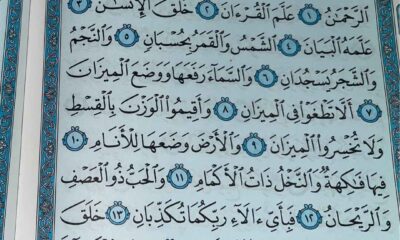
 Blog8 months ago
Blog8 months agoSurah Rehman
-

 Prayers3 months ago
Prayers3 months agoHow to Build a Deep Spiritual Connection with Allah
-

 Blog2 months ago
Blog2 months agoSurah Rahman PDF Download
-
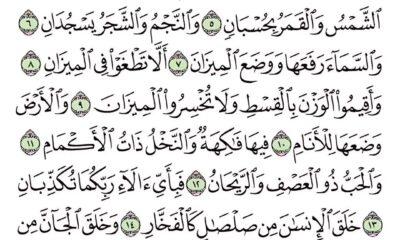
 Blog4 weeks ago
Blog4 weeks agoSurah Al Rehman
-
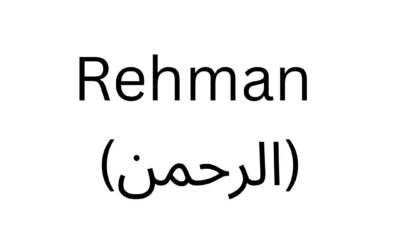
 Blog3 weeks ago
Blog3 weeks agoThe Most Merciful – Rehman (الرحمن)
-

 Blog3 weeks ago
Blog3 weeks agoCan Jinn Enter Paradise? Quranic Explanation from Surah Ar-Rahman
-
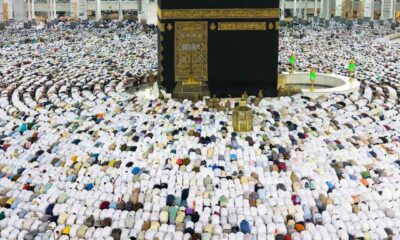
 Hajj3 weeks ago
Hajj3 weeks agoHajj 2026 – Guide, Packages, Dates, and Preparation for the Sacred Journey
-
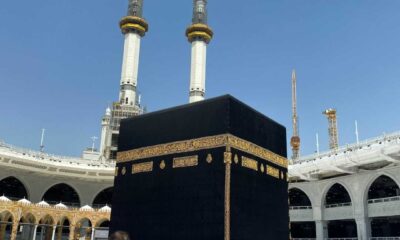
 Hajj3 weeks ago
Hajj3 weeks agoHajj 2026 Expected Dates (1447 AH)
